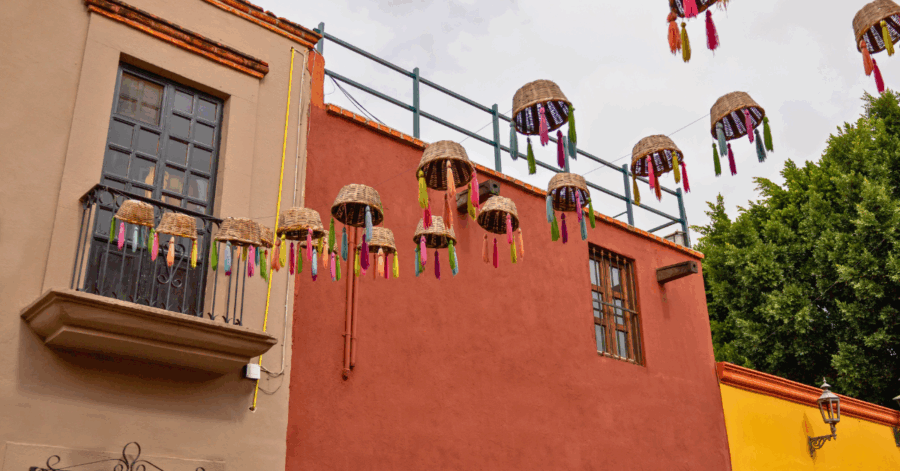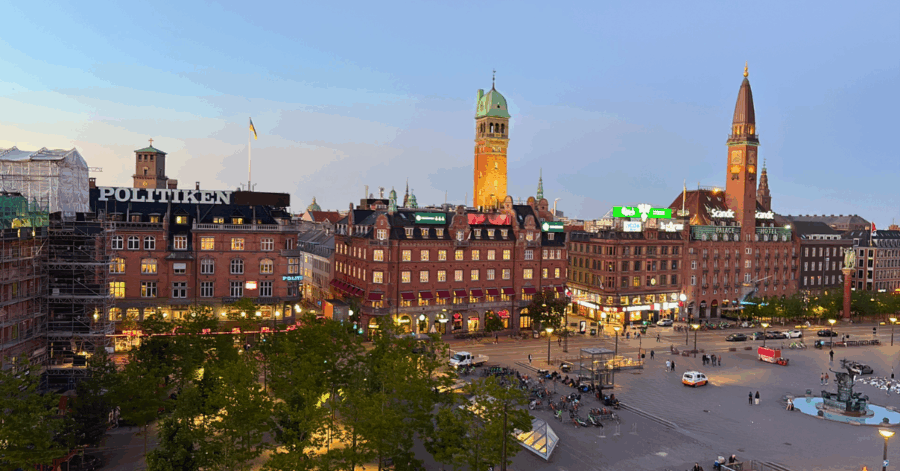在北京,“拜拜“ 是一个西方的进口货
或者:
从你好到再见
你好
To all those regular followers of the Global Ambassadors Blog out there who might have actually read and up until now still remember my first post, I owe you a brief redaction and apology.
Today, instead of contrasting my earlier blogging by providing a list of all the more fascinating differences between life back home and life in Beijing as I said that I would, I’m just going to type up some brief vignettes from this past summer so as to tell a few stories about the places and people I encountered during my trip and let them all speak for themselves. To spend my last blog writing solely on the ways in which things in China differ relative to the U.S. feels both cliché, as it’s already been attempted so many times, as well as a little ungrateful- why draw attention to that which is obvious anytime anyone travels anywhere that is home to a different culture and people than their own? It simply wouldn’t be original and simply put, it’d be boring. I’d rather focus on the occasions in which the foreign environment I found myself in challenged me or charmed me, regardless of whether it felt especially far from what I’d known for twenty or so years of life before.
798- Turning guns into brushes
七九八– 把枪杆做成画笔
Beijing is home to a whole host of world-famous landmarks and historical sites. Even children the world over are familiar with the Great Wall as well as the Forbidden Palace, which is to say nothing of the slightly less well-known but still immensely famous entities such as Tiananmen Square, the Lama Temple, and so on. My fellow classmates and I were all too lucky to visit the majority of Beijing’s most beauteous and historied locations, but the site that has stood out in my mind more than almost any other was much newer and more modern- the bustling 798 Arts Zone.
The 798 Arts Zone is comprised of several entire city blocks in the Northeast corner of Beijing city proper, not too far from the Beijing Capital International Airport. Crammed alongside boutique retailers, high-end coffee shops and a wide variety of small restaurants into a diverse urban space that used to be an industrial park for the production of weapons for the PLA back during the Mao era, are countless art studios and galleries all dedicated to seasonal exhibitions of local and international artists’ work. You can stroll from door to door (as my roommate and I did for most of my last full day in Beijing) and take in an unending slideshow of art projects featuring all manners of style and inspiration. Everything from traditional Chinese art forms to modern interactive art installments was represented there in 798, including a gallery of clay miniatures made in a single family’s style that had been passed down across six whole generations and a youthful café/art gallery fusion that featured an adult ball pit and a wall of paintings that had been done entirely on unfolded gum wrappers.
Perhaps the most interesting aspect of all this was the slightly rebellious spirit immanent in some of the collaborative art projects. For example, there was one gallery that cited as its guiding theme a general questioning of “appropriateness”- not only what the word itself meant, but also its implications for society. This was just around the corner from another gallery that featured a series of paintings by a small group of artists that were dedicated to diverging from what they viewed as the collectivistic norms of the present-day Chinese art scene and Chinese artistic tradition as a whole, focusing instead on poignant displays of individualism in their work. While these are hardly challenges being made directly to the Chinese state government, they did feel felt just a little bit like attempts to push back against something, and some of the wording and artistic content in several of these galleries very much seemed like it was attempting to skirt a line- particularly the Party line (I’ll post an example of what I mean here with the rest of the images for this section). In any case, standing amid derelict communist rifle factories now filled to the brim with the fruits of artistic free expression borne under one of the pickiest regimes that China has known in recent years, as one of my fellow Longhorns on this trip put it- “You have to wonder what Mao would think if he could see all this.”
Capital Associates Law firm- Durians and Dayes
天咨律师事务所– 榴莲和大爷
The CET Program that brought me to Beijing in the first place was half-language study, half-internship experience. Not only did the program deliver on both of these (some of us may have even felt they over-delivered a bit at times), but in my case I was granted the opportunity to work in a law firm on the East side of Beijing called Capital Associates alongside some very talented and very friendly people specializing in international business law. Now, being a lowly intern who only had a basic to “intermediate” (whatever that really means in language study) grip on Mandarin, I wasn’t exactly right in the middle of the trenches and all the action of the firm’s most exciting casework. That being said, I was able to learn quite a bit about Chinese office culture as well as the general ins and outs of working across-borders on legal problems. I also accomplished some translation support as the resident Native English Speaker. Most of my day-to-day assignments involved either the verifying of translation accuracy and the outright translation of legal documents and memos, or basic legal research for a variety of topics. In my two months at Capital Associates, I learned far more than I’d ever hoped to about serving divorce papers between the UK and China, the corporate structure of Danish enzyme companies, and the rising trend of fruit fraud in the East Asian Durian trade; I actually managed to make a material contribution to one case involving the sale of fake 猫山王 or Musang durian to a local client (The supplier who cheated him would later settle with an offer of ten times the original price and an apology but our client decided the apology wasn’t sincere enough and pushed for a suit). At times it felt like I was working a series of odd jobs for the firm, but I had an amazing, educational experience overall and wouldn’t trade it.
As for the work culture in the office, I have to say that overall things weren’t all that different from how they are back home, though there were definitely a few distinct differences that reared their heads within view of my desk in the corner.
For one thing, the approach to office attire was much more casual than I would have anticipated. Showing up in slacks and a button-up every day, I sometimes felt slightly overdressed compared to some of the other interns and assistants who were wearing what I’d have to describe as casual wear. Even my ranking coworkers, with whom I spent most of my time in the office, tended to dress only somewhat more formally than that- my primary supervisor, Lily, was particularly fond of a blouse that was festooned with pink flamingos and fitted with billowy sleeves and cuffs. Frankly, I much preferred this approach to daily wear to what you tend to see in office spaces where I’ve worked before in the US. It made me wish that certain industries were similarly a bit less conservative about the dress code.
For another, casual conversation amid even our busiest days often trumped (pun intended) anything else we were doing. Regardless of how occupied they already were, several of my coworkers were often all too happy to discuss a myriad of fascinating topics from US politics (hence the pun) at home and abroad to certain aspects of China that I was curious about. Not only was more time than perhaps should have been dedicated to these discussions, but some of them may not even have been entirely appropriate for us to be discussing in the office, especially had we been having them fully in Mandarin. Politics is maybe an obvious example at least so far as it is often frowned upon in many an American workplace. My favorite example, however, would be the time that Lily stopped to explain some of the subtleties of Mandarin profanity to me. One day, my co-workers had tea delivered to the office from Gong Cha (those familiar with Dobie back in Austin will know the brand), and I offhandedly remarked that there was a similar chain tea shop near my school dorms in Beijing known as Tea Daye. Lily made a face at me, blinking for a moment, and asked what I was talking about. I explained again what I was referring to, and since she hadn’t heard of the company I pulled up their website. Once she understood what I meant, she laughed and launched into what must have been at least a fifteen minute conversation about how “daye,” or Uncle as it was commonly translated in the North of China, where we were, was a fixture of a very common swear in the South, where she was from, and she understandably thought I had just dropped something akin to a Chinese F-bomb in a conversation about tea.
All in all, there were not many boring days in the office this summer.
Chinese- One Language, Many Tongues
中文– 一个文,很多语言
Being a relatively inexperienced language learner right in the middle of the country that is home to the language you’re intent on mastering can be both humbling and frustrating at times. I stumbled through a good few faux pas and embarrassing moments myself, including one at a small fast food noodle joint where a waitress simply nodded and walked away in the middle of my failing utterly to ask her a question, and another at the airport right at the very end of my trip in which I all-too-confidently attempted to flex my new skill at speaking Mandarin on the go- within moments I had to sheepishly request that the terminal worker switch back to English as I could no longer understand the terminology they were using.
Such frustrations were something I anticipated long before ever actually arriving in China, but what I didn’t expect was that the difficulty in communicating with some of the locals would occasionally have less to do with my newness to Chinese in general, but instead their newness to Mandarin Chinese.
For those not already familiar with the Chinese language family, “Chinese” is sort of an illusive concept in that while there is one single written system of pictographic characters that everyone in the country learns to read, regardless of what they grow up speaking with their families, there is no single spoken language. Instead, there is actually a rather diverse collection of different “dialects” of Chinese that all operate under very different rules of pronunciation and tonality, many of which are not even remotely mutually intelligible with one another. For example, Cantonese is probably the second most prominent language behind the government-formalized Mandarin Chinese (which everyone learns in school outside of Hong Kong and was retooled and simplified from a general Northern Chinese dialect back in the mid-twentieth century to give the people of the nation a lingua franca in addition to their hometown tongues) and not only does it sound nothing like Mandarin, it also has six tones instead of four*. So, if you were to show up to a room full of Mandarin Chinese speakers, and only spoke Cantonese, there’s practically nothing you would be able to communicate to them.
Thanks to government policies over the past few decades, most Chinese you meet in China outside of Hong Kong will be able to speak at least some Mandarin, and most of them will also speak it fluently even if it’s technically their second language. However, even then you will still often find yourself contested with very thick regional accents that make things very difficult for an international student who has been taught particularly academic Mandarin. Even the Beijing accent, in spite of North China’s being the homeland of the precursor tongue to modern Mandarin, can be very hard to decipher if you aren’t familiar with it (they add a lot of pirate-y sounding “r” sounds to the end of certain verbs in addition to a few other subtleties). There was a local Chongqing noodle shop near campus that my friends and I often frequented, and the ladies operating it were very good to us during our stay in Beijing. However, our first few visits were fraught with misunderstanding for while we could interpret the menu just fine, their southwestern accent so distorted the consonant sounds to us and our novice ears that we had no idea that “za zaang” was just their home province’s way of pronouncing what we had learned as “zha jiang” 炸酱 or fried bean sauce.
I suppose if nothing else, the modern Chinese struggles over language and regional diversity provided a comforting reminder that language -as foundational as it is to every society- is hard for all of us out there just trying to make it work.
Shanghai and Qingdao- An International Country and a Small World
上海和青岛– 国际的国家和很小的世界
During our time in Beijing, my classmates and I were lucky to be able to travel to two other Chinese cities- as the subheading suggests, Shanghai and Qingdao.
Both were amazing, rich and vibrant destinations full of their own unique culture and history, and while I would very much likely to write several pages’ worth on each, this blog is already getting to be long enough and I’d like to just touch on two small interactions that really put into perspective the ways in which the modern world has changed and how small the world can truly be.
In Shanghai, while searching for something to do of a Sunday evening, my friends and I happened to spot a local Jazz and Blues bar not far from the Bund where all of Shanghai’s most beautiful skylines can be seen with outstanding clarity. Being a blues-hound and purveyor of jazz myself, and faced with outrageous cover charges for other nightlife destinations in the neighborhood, I urged my fellow travelers to give it a shot. What we discovered beyond the plain brick façade of the lounge was an extravagant recreation of an old American hotel bar from the early 20th century: wrought with gorgeous dark wood and lit with the dim romantic vibes of a late evening in a Jazz-age speakeasy with more space and décor than the physical limitations of an actual speakeasy would have allowed. That Sunday was “jam night,” an occasion on which the current in-house feature performer, who had just arrived and would be performing nightly for the next several months, would lead newcomers and locals to Shanghai who had the chops and the instruments required in some on-the-spot jazz improv based on a variety of old standards. It was a magical evening, and we witnessed some serious talent that had slunk in right off of the streets before vanishing back to them at the end of the night, never to be properly recognized for the quality of their craft in a time in which jazz music had long since seen its day as the preeminent popular music genre. A friend and I would later get to chat with the star host of the evening and find that he was from Detroit -my friend’s own hometown- and that he had been traveling the East Asian circuit for some time. This might not seem all that significant to the readers out there, but to me there’s something telling about traveling to the literal opposite end of the planet only to find a deliberately crafted haven to some of your home country’s most famed cultural exports and an incredibly talented expatriate filling its halls with the music you grew up on.
In Qingdao, while wandering about a massive annual festival that took place across the entire city, we met with a rather amicable young student about our age who had arrived recently from Italy. He spoke not only some basic Mandarin, but comfortably conversational English as well. He approached us simply to link up with some fellow foreigners (as you can probably imagine, in a country with something like 95% homogeneity, you will find yourself standing out rather handily from the first day forward) and we quickly got to discussing the excellent time that we had all been having living abroad in China thus far. The conversation soon turned to the specifics of where we are all from, which he was curious about since he had actually lived in America himself for a few years while attending High School. I won’t list specifics so as to protect the anonymity of my classmates, but what we soon discovered was that this young Italian student was close friends and classmates with an American who knew one of us from an old sports rivalry between their neighboring high schools! Thousands and thousands of miles from home for all of us, regardless of where precisely our hometown lay, and here we had just discovered by sheer dumb luck someone who was separated from us by a single degree in one of the less populous Chinese cities to boot.
The world shrank as we filled in the final corners of the map all those years ago, and it continues to shrink every day as globalization marches forward and linkages such as these are forged over and over again.
再见
Before signing off, I’d like to briefly explain what I meant by my rather odd-sounding blog post title. The reason I refer to “goodbye,” or “bye-bye” (the pronunciation of the Chinese term I translated it to) as a “Western import” is because while I do believe that there are somewhat similar terms originating in China that are more directly comparable to these two, the “bye-bye,” or to use the proper phonetics, “bai-bai,” you will often hear when you visit is most definitely a transliteration of the English expression and not an originally Chinese term. The most common way to say “Goodbye” in Chinese is to say “再见” (zaijian), which, even as a relative novice, I can tell you is directly translated as “again see” or “see you again” if translated a bit less directly.
Now, suggesting that one will see somebody again another time as a means of saying goodbye is hardly a concept exclusive to Chinese; however, as I try to arrange in my mind a messy two months’ worth of memories into a meaningful narrative (or even just a coherent piece-by-piece retelling), while also attempting to sort out what it all meant or at least what it means for me as a person, I find myself drawn to the expression.
Though this is my last blog and I’ve just days before had to say goodbye to the country that was my home for most of the summer, I’ve practically never hated having to use the word more in my life. I already miss China, its contrasting bustle and serenity, its people and its culture, its amazing food and astounding affordability. I missed a great deal about my home and the people in my life too, but I don’t remember the last trip I came home from where I was already this desperate to get back.
So, dear readers, I won’t say goodbye to you nor to beautiful 中华, not today.
I’ll say 再见 in the sincerest hopes that we’ll all catch up again, a little farther down the line.
-Max Malone 马梦龙
A grateful Chinese student
*Chinese languages, like several other East Asian languages are “tonal” in that the pitch with which you pronounce a word has a direct effect on the meaning of the word. For example, 妈, pronounced Ma as in mama and said with a higher “first tone” pitch means mom or mother, whereas 马, also pronounced Ma as in mama, is said with a much lower tone that would be graphed as a checkmark if you accounted for the shift in pitch over time, and it means horse. To illustrate the importance of tones in Chinese, take the following classic example: 妈妈骂马吗?Every syllable in this complete sentence is pronounced as “ma” with a different pitch and would sound like mamamamama to an English speaker, yet it translates as “Does mom scold the horse?”
This post was contributed by Max Malone, a 2018 Global Ambassador.
Don’t get left behind. Subscribe to the Study Abroad Blog to keep reading>>












This was truly a very enlightening article on some of the many experiences that Max Malone had while ambassadoring this summer in China. Throughly enjoyed the information that was contained within.